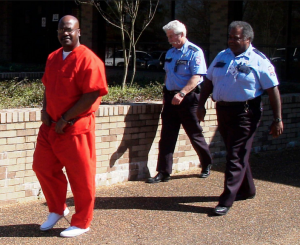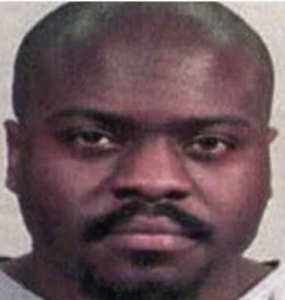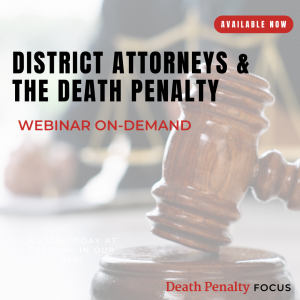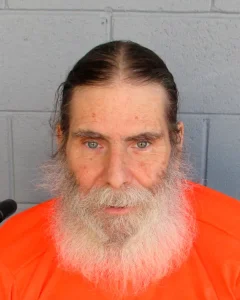ACLU’s report on Los Angeles DA Jackie Lacey’s shameful death penalty record
“In Los Angeles County, which is known as a bastion of progressivism, we have a system that is churning out more death sentences than any
“In Los Angeles County, which is known as a bastion of progressivism, we have a system that is churning out more death sentences than any

Three weeks ago, the U.S. Supreme Court overturned the 2010 conviction of Curtis Flowers, who has been tried six times for a 1996 quadruple murder
Two milestones were reached in June, starkly illustrating how broken the death penalty in the United States is. In North Carolina, prosecutors formally dismissed all
New Mexico closed its death row late last month. The last two condemned prisoners, Timothy Allen and Robert Fry, had their sentences vacated by the
In his chapter, “Capital Punishment,” in the American Bar Association’s The State of Criminal Justice 2019, Ronald J. Tabak reviews significant developments through the past
Early last month, a small group of California district attorneys organized what it called a “Victims of Murder Justice Tour” in a few cities around

“I have no reason to believe government officials are deliberately hiding the way they pay for capital trials, but I do believe taxpayers in death

Twenty-one years after New Hampshire legislator Renny Cushing introduced his first bill to repeal the death penalty, he was finally successful last month when the
The machinery of death was in high gear in the South in May. Georgia, Tennessee, and Florida each killed a man, and Alabama executed two.

(Updated July 4, 2022) On Friday, the Oklahoma Court of Criminal Appeals scheduled execution dates for 25 men on death row, including individuals with claims of innocence, severe mental illness, and intellectual disability. The CCA set the dates in response to a request by Oklahoma Attorney General John O’Connor, who said he was acting “for the sake of the victims’ families, many of whom have waited for decades.” Despite troubling

Fifty years ago this week, the United States took a historic step toward a more fair, humane, less racist criminal justice system. On June 29, 1972, the Supreme Court ruled, in Furman v. Georgia, that the death penalty constituted cruel and unusual punishment in violation of the Eighth and Fourteenth Amendments. The decision halted executions nationally, and more than 630 people sentenced to death in the U.S. were resentenced to life in prison.

The Oklahoma City law firm that conducted a pro bono independent investigation into the case of Richard Glossip, the second in line of the 25 men Oklahoma Attorney General John O’Connor is seeking to execute beginning in August, released its findings earlier this month. Its statement was unequivocal. “Considering the facts we uncovered, and that there exists no physical forensic evidence or credible corroborating testimony linking Glossip to the crime,

Three California district attorneys are asking the U.S. Supreme Court to review a Ninth Circuit Court of Appeals ruling that denied their right to intervene in a lawsuit challenging the constitutionality of the state’s lethal injection protocol. San Bernardino, Riverside, and San Mateo County DAs Jason Anderson, Michael A. Hestrin, and Stephen M. Wagstaffe petitioned the Court for a writ of certiorari late last month. In 2018, a federal district

The death penalty is off the table for Cleamon Johnson, an alleged Los Angeles gang leader accused of killing five people during the 1990s. Now, even the special circumstances that would prohibit parole have been stricken. Last month, Los Angeles Superior Court Judge Curtis Rappé ruled that the racist conduct of the LAPD investigating officer and the failure of the DA to disclose his conduct for four years were grounds,

In Texas, a state district judge rejected a request by Nueces County District Attorney Mark Gonzalez to cancel a death warrant for a man scheduled to be executed on October 5. Gonzales sought to cancel the execution of John Ramirez because of his “firm belief that the death penalty is unethical and should be not be imposed on Mr. [John Henry] Ramirez or any other person.” Gonzales says one of

In her piece, “How the Supreme Court Stopped Fighting the “Machinery of Death,” in Balls and Strikes, Yvette Borja looks at how far the U.S. Supreme Court has strayed from “seriously considering whether the death penalty could ever be constitutional.” She notes that since the Court’s 1972 Furman v. Georgia decision, which found the death penalty unconstitutional, all five justices in the majority wrote concurrences clarifying their reasoning. All five

On Tuesday, June 14, 2022, at 12 p.m. (Pacific) / 3 p.m. (Eastern), Death Penalty Focus hosted a one-hour webinar on the role district attorneys play in capital cases, including how they can undo death sentences after they have been imposed, and how their policies can make our criminal justice system more fair, more humane, and less racist. We also discuss the statement from prosecutors, including two of our panelists,

Arizona killed Frank Atwood by lethal injection on Wednesday morning, shortly after the U.S. Supreme Court rejected his final appeal. The 66-year-old Atwood was sentenced to death in 1984 for the murder and abduction of 8-year-old Vicki Lynn Hoskinson. It was the second execution in two months in Arizona. The state killed Clarence Dixon in May, its first execution since 2014, when Joseph Wood was executed in a botched lethal
Death Penalty Focus
500 Capitol Mall
Suite 2350
Sacramento, CA 95814
Tel: 415-243-0143
information@deathpenalty.org
Federal Tax ID# 95-4153420
DPF is a 501C3 non-profit organization

In Special Consultative Status with the UN Economic and Social Council since 2017
